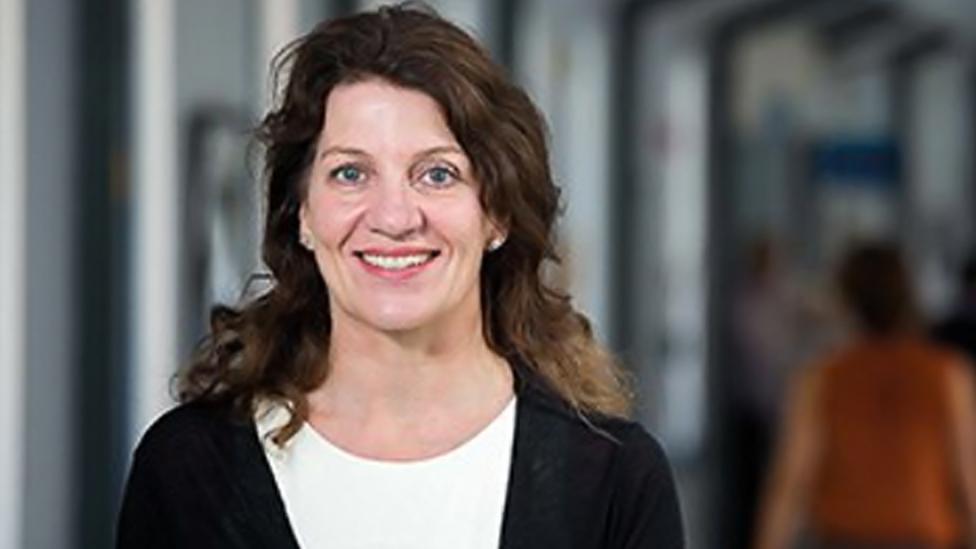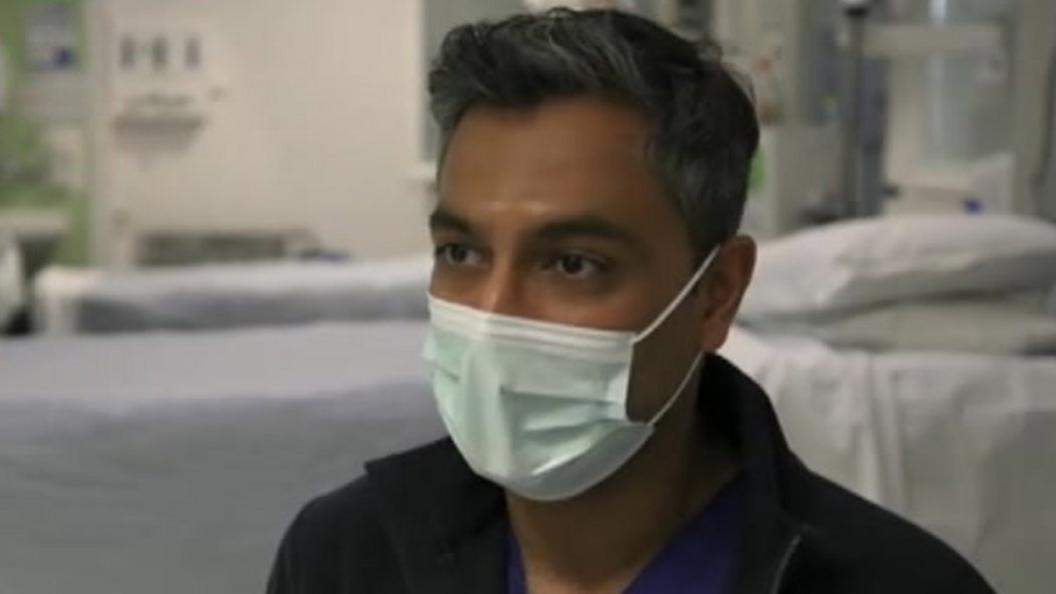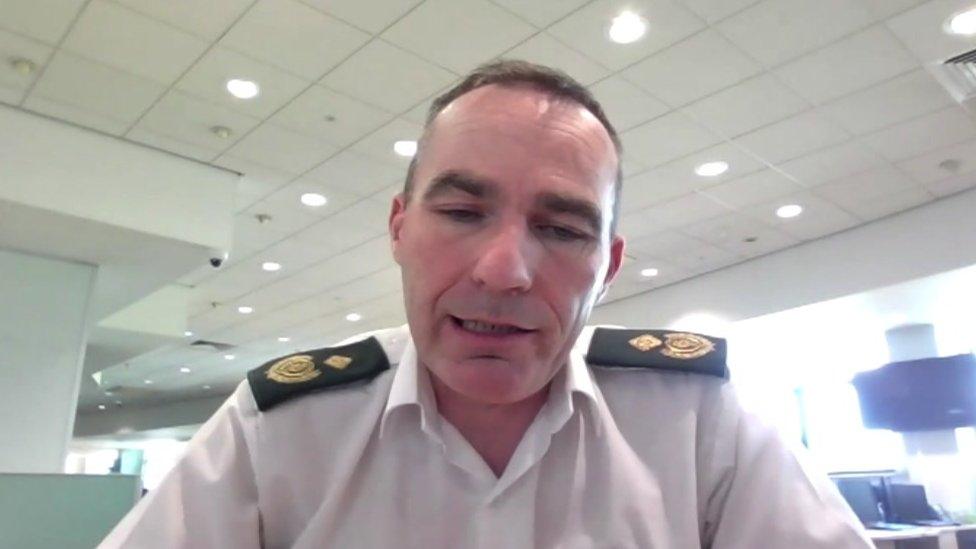NHS boss feared waiting for ambulance after stroke
- Published

An NHS boss who had a stroke was taken to A&E by her husband rather than calling for an ambulance because of concerns over long waits.
In a series of tweets, Gloucestershire Hospitals NHS Trust chief executive Deborah Lee praised his swift actions.
She said he had "bundled her into his car", last week, after she had showed the signs of a stroke because he had heard her "lamenting ambulance delays".
She is recovering but says it may have been different if they had called 999.
'Eternally grateful'
Waits for an ambulance in England are the longest since new targets were introduced, in 2017.
And Ms Lee's regional service - the South West - has the longest waits in the country, with category-two calls, which include strokes, taking nearly two hours, on average, to reach patients in March.
The target is 18 minutes.
In the tweets, Ms Lee said: "Naturally, I am eternally grateful to my husband for his swift actions… but I can't get one thing out of my head.
"What if my husband hadn't been there and my daughter had called for an ambulance and I'd been put in the cat[egory]-two stack?"
She went on to say it was not the fault of the ambulance service and the whole system was "working unrelentingly to solve this but to no great avail".
Ms Lee said hospitals were struggling to discharge patients, because of a lack of social care, and so delays were building up in the rest of the system.
Allow X content?
This article contains content provided by X. We ask for your permission before anything is loaded, as they may be using cookies and other technologies. You may want to read X’s cookie policy, external and privacy policy, external before accepting. To view this content choose ‘accept and continue’.
She went on to urge the government to overhaul social care by investing in training and pay for staff.
"I don't have the answer - but government has the power to generate one," she said.
Ms Lee also praised the treatment she had received.
"From start to finish, the NHS served me with pace, expertise and kindness," she added.

Are you affected by issues covered in this story? Share your experiences by emailing haveyoursay@bbc.co.uk, external.
Please include a contact number if you are willing to speak to a BBC journalist. You can also get in touch in the following ways:
WhatsApp: +44 7756 165803
Tweet: @BBC_HaveYourSay, external
Please read our terms & conditions and privacy policy
If you are reading this page and can't see the form you will need to visit the mobile version of the BBC website to submit your question or comment or you can email us at HaveYourSay@bbc.co.uk, external. Please include your name, age and location with any submission.
- Published24 September 2021

- Published14 July 2021
